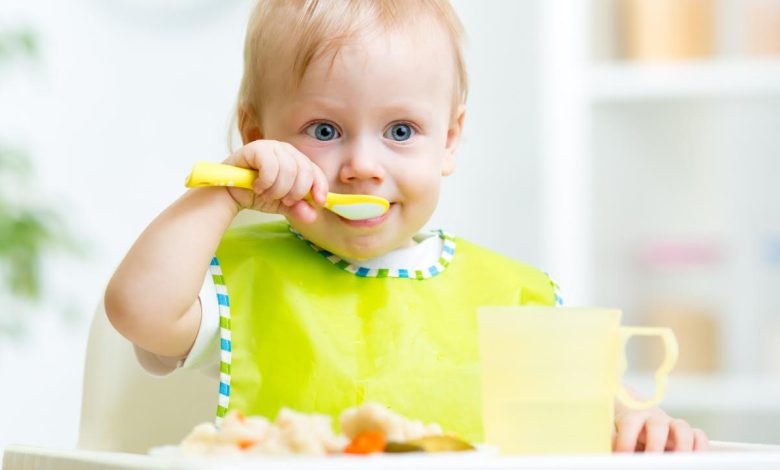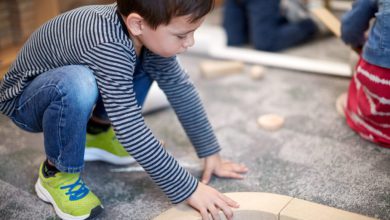Safety at School for Children with Allergies

Safety at School for Children with Allergies
Sending a child to school knowing they are vulnerable to dangers like allergic reactions can be nerve-racking, especially with young children that may not be completely capable of regulating what they’re eating and touching. If you’re the parent of a young child with sensitivities to food or anything else, there are several things you can do to not only keep your child safe at school but also to rest easy when you leave.
Do Your Research
As a parent, you know the ins and out of your child’s allergies, and that’s the first step to keeping your child safe at preschool. If it’s a new allergy, research it and know which activities and foods are a danger to them. For example, if your child has a dairy allergy, it’s helpful to compile a list of common foods and snacks to be warry of for teachers and caregivers. Particularly with childcare, research can be helpful. Looking at a childcare program’s policies and accommodations for children with allergies can help you better inform your child of what to do while at school. Little Sunshine’s Playhouse and Preschool offers a sample menu to give parents a better idea of what their children may be eating at school. Check out our sample menu here. Some schools, like Little Sunshine’s, are even nut-free to better ensure the safety of children with nut allergies. The more you know, the better you can prevent accidents from happening. Click here to check out a free online course for familiarizing yourself with safety and preparedness.
Inform Childcare Staff and Teachers
When sending your preschooler to school with allergies, informing leadership staff and teachers is the most important step you can take. Know which teachers oversee your child most in their day, and make sure they’re aware of your child’s food allergies. Creating a relationship with your child’s teachers will help them to better remember their sensitivities. Even more, have conversations with the school’s nurse or chef.
Have an Emergency Plan
It can be anxiety-inducing considering what might happen if your child experiences an allergic reaction, but you and your child’s teachers will be all the more prepared after creating an emergency plan. A useful form that can be given to teachers and caregivers can be found here. Give this document to teachers along with any medication needed to treat your child’s condition in the case of a reaction. This can include epinephrine, an inhaler, or anything else suggested by your child’s pediatrician. Be sure your preschool teachers know how to use this medicine and what to expect after. The document includes symptoms to be aware of, suggested treatment with medicine type and correct dosage, and any general medical information that is helpful to childcare staff and emergency responders. Being on the same page as caregivers is the best way to ensure safety at school!
Start Meal Planning for Children with Food Allergies
This point can be essential for children that are too young to self-regulate. If eating school-provided lunches seems too great of a risk for you and for your child, you can always try packing their lunches. Even better, get your children involved in cooking and educate them on what makes the food they pack for lunch safe to eat and what foods could be harmful. For more on the benefits of cooking with children check out this article. With this, children should be discouraged from trading food with other children, as students may give or receive potentially harmful allergens. If you don’t have time to pack lunch, try speaking with lunch staff at your child’s school and discuss how they might better accommodate your child’s needs. You might be surprised by how kind and helpful lunch staff can be when it comes to children with allergies. Supervision by informed teachers is helpful during lunch as well.
Take Steps to Prevent Bullying
Have a discussion with your child’s preschool teacher about bullying. Teachers are best equipped to sense social shifts in their classrooms and are also best equipped to encourage positive environments. Ask them to keep a closer eye on your child and their friends for any signs of bullying. If you’re interested in a more proactive approach for young children, you’re in luck, because children are easy to please. Bring snacks the teacher can hand out and ask her to explain that the snack they’ve received is allergy-free but that some foods can be dangerous for certain students. This helps to introduce allergies to young children in a way that is fun and enjoyable to them.
Teach Self-Management Skills
Just as it’s important for parents to be informed about their toddler’s allergies, it can be important for children to be informed too, especially as they get older and are given more responsibility with regulating their contact with allergens. Without sugar-coating the topic and without scaring, explain to them what might happen if they come into contact with something that is dangerous to them. It’s also helpful for them to know what to do if they start feeling symptoms and what these symptoms may look like. This way, they are better able to describe what is happening to teachers when they feel itchy or are having trouble breathing or anything else. Your children shouldn’t be scared of their allergies, but instead confident that they know what to do if they experience a reaction. This confidence and personal responsibility will increase the chance that your child will make safe decisions. The American Academy of Allergy Asthma & Immunology (AAAAI), an organization dedicated to researching allergies and how they might better be treated and prevented in the future, created a simple computer game children can play to become more aware of potential allergens. The game can be found here. It can be important to establish this awareness when children are young so they can only become better informed as they grow older.
A few preventative measures can become the difference between a safe environment and a potentially harmful one. The best thing you can do for your child with allergies is to be proactive and informative until they are old enough to self-manage and problem solve on their own. Now, take a deep breath, trust your child’s preschool teachers, yourself, and, most importantly, trust your child.
Related Articles and Websites
Little Sunshine’s Playhouse and Preschool Sample Menu
Free Online Course for Familiarizing Yourself with Safety and Preparedness
Emergency Care Plan for Children with Allergies
Benefits of Cooking with Children





